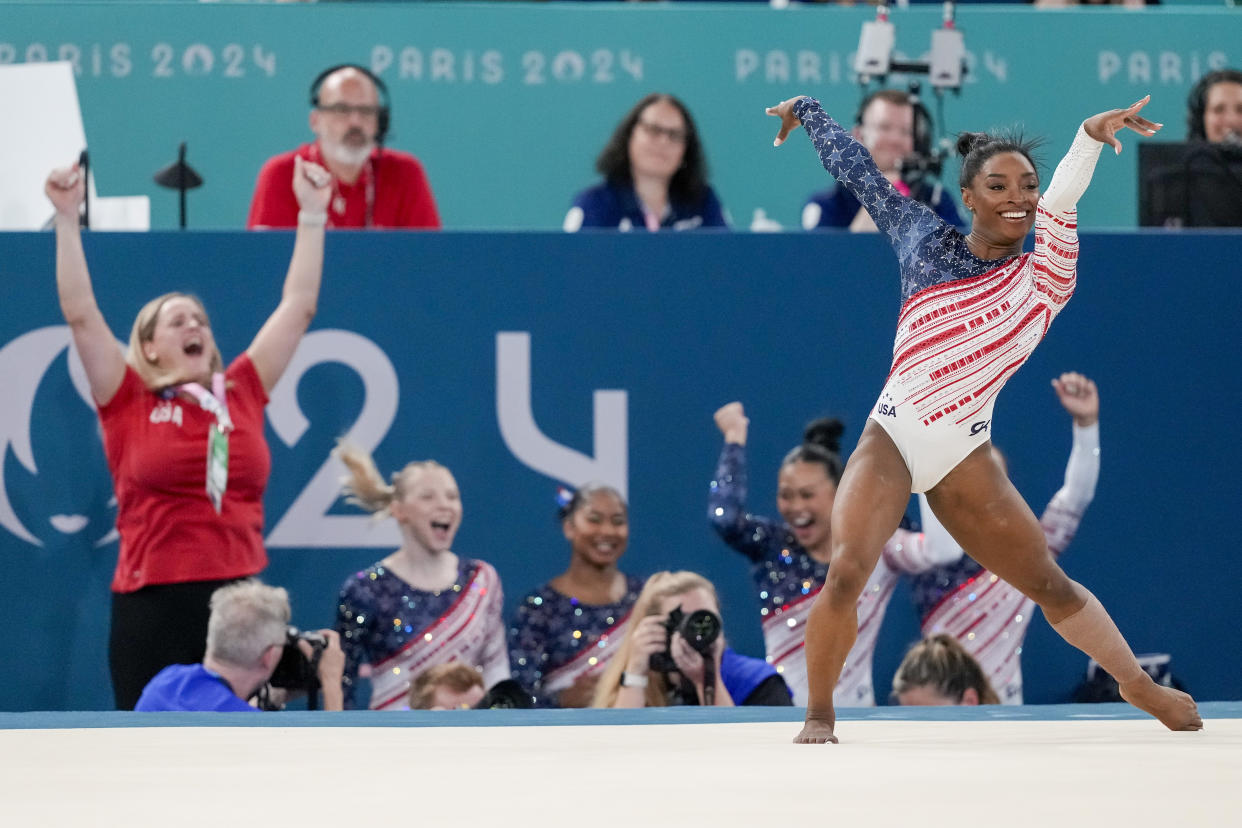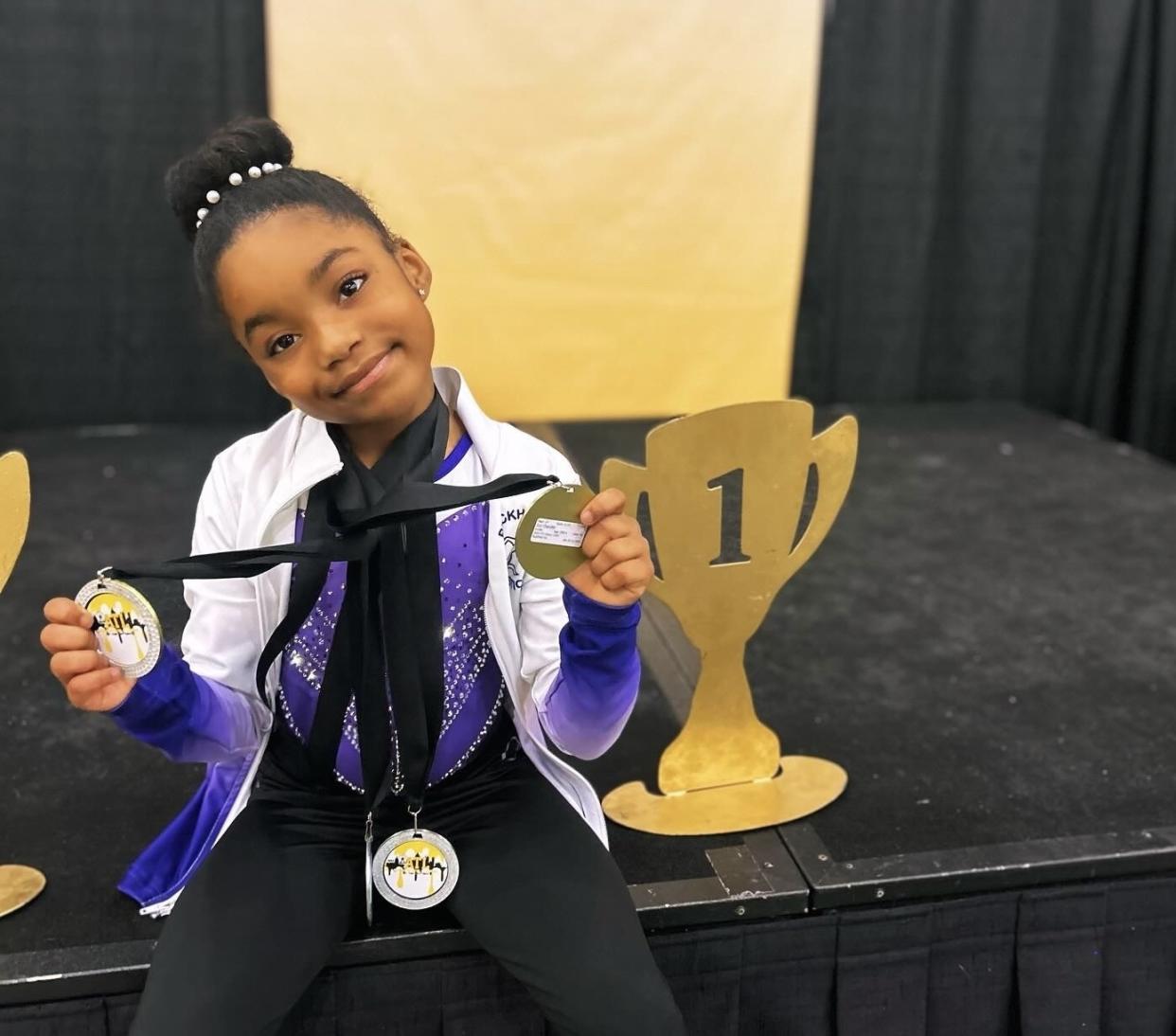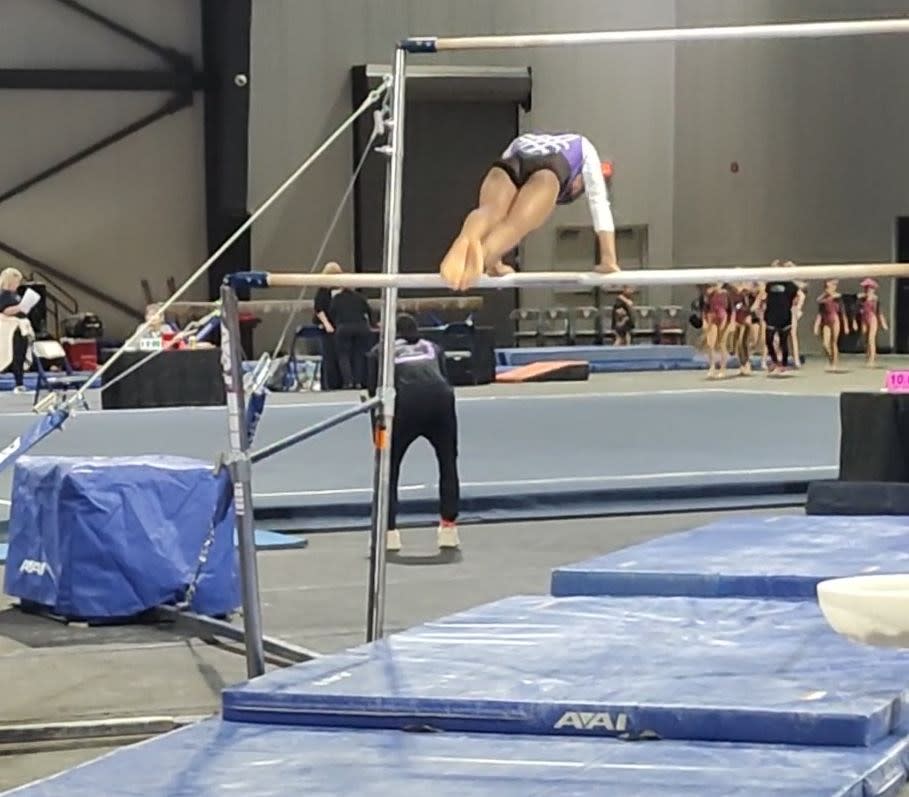What it’s like to watch Simone Biles make history with her biggest fan — my 7-year-old daughter

Backflips off the bed. Front tucks onto the couch. Handsprings in the hallway. My 7-year-old daughter’s life has been thoroughly overtaken by gymnastics and her hero, Simone Biles.
“I want to be just like her and go to the Olympics when I grow up,” she told me Monday, her hands emulating Biles’s gestures. “She does cool flips and dance moves. But she works hard.”
With Biles, now the most decorated U.S. Olympic gymnast, clinching a gold medal Tuesday in Paris in the women’s team final, her performances this week have been, by far, the most important ones to watch in our household. Her every move has a profound impact on my daughter’s own journey into the sport, as if she might be one of her coaches. As I watch her fingers slide back and forth on her iPad to get the slow-mo of Biles executing moves that have upended the norms of women’s gymnastics on a global scale, many named after her, I am in awe of her commitment to be like Biles, who was introduced to gymnastics at the age of 6.
But on Sunday, when Biles injured her left calf muscle while warming up for a floor exercise routine, I winced along with most of America, fearful that her historic run might be over in an instant. My daughter, however, was much calmer.
“I love hard days,” she said, having little doubt that Biles would go on to notch the day’s highest scores. I’d gotten used to such confidence, having watched my daughter cry through warm-ups on the vault, her “worst event,” only to go on to win gold in regional and national competitions.
Her confidence does still give me some pause, however, if only because it developed so fast.
Early signs

Three years ago, I first realized that my daughter had potential as a gymnast. After spending most of her ballet classes doing cartwheels, we traded in her tutu for a gymnastic leotard, and during her first formal class, the coach asked me if she’d be interested in moving up to a more advanced level. Before I knew it, we’d joined a gymnastics club in Atlanta and I was promptly informed by the coach that her skills were “exceptional.”
Soon, my friends had a nickname for her, “Baby Biles,” and she ended her first season winning first place in vault and floor exercise at a national competition.
She now calls gymnastics her “gift,” and I have to keep reminding myself that she’s just 7. The truth is I’ve been nervous about my child’s physical abilities since she climbed out of her crib at 9 months. At the age of 2, she jumped off a bed to try to land in an open drawer, hitting her head on a metal knob and requiring three stitches. At 3, a scared teacher had to explain to me how she jumped out of her playpen and broke her elbow, an injury that required surgery.
New burdens

The work ethic required to get good at a gravity-defying sport is no small thing — for both the young athlete and their parents. There are the daily practices, the drives to and from the gym, the daily emails from her gymnastics club, the travel to meets across the country.
The financial costs involved have been significant enough to make me reconsider whether it’s worth it. There are endless fees: monthly tuition, thousands to cover the costs incurred at meets, organizational dues, coaches salaries and more. In just one year of competing, we’ve dipped into our savings more times than I care to admit.
Our whole family — including our daughter’s two siblings — has made sacrifices, including fewer shared meals. When my daughter gets home from a three-and-a-half-hour practice at 8:30 p.m., she heads straight to the shower then to bed.
As a mother, it’s especially hard. I can’t interrupt practice to kiss her bloody calluses because she’s now a competitive athlete who is being trained to endure that pain. I’m filled with anxiety when I think that my little baby could one day leave me to live in another state to train with a renowned coach or at a famous gym, as is so common for top gymnastic prospects. Normal educational routines are already disrupted because of the demands of practice, and her new coach has mentioned bringing in a tutor to maximize the time that she can spend in the gym.
When the demands of training grew, Simone Biles was homeschooled during her high school years, as I learned while assisting my daughter on her Black history project in first grade. The poster she made that accompanied her report read, “Simone Biles, the greatest gymnast of all time.” We also learned that Biles was diagnosed at an early age with attention-deficit hyperactivity disorder (ADHD), and used gymnastics as a way to help steady her.
“I get really distracted easily, but gymnastics helps me focus,” my daughter told me when I asked her about the similar attention challenges she and Biles may face. “Whenever I do my dance-throughs or my tumbling, my mind is thinking of how tight I should be. I also have to listen to my coaches. But when I don’t go to gymnastics, I’m all over the place.”
It’s statements like that that help me allay my own fears, but it’s also seeing the pride she has for the 30-plus medals that are displayed on the walls of her room, and the smile on her face when I pick her up from practice.
So, as we watched Simone Biles's performances this week, we viewed them not just as fans, but as fellow competitors, and maybe someday, fellow Olympians.


